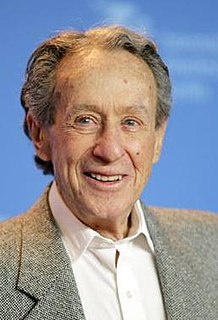Top 9 Quotes & Sayings by Arthur Penn
Explore popular quotes and sayings by an American director Arthur Penn.
Last updated on April 21, 2025.
I don't storyboard. I guess it dates back to my days in live television, where there was no possibility of storyboarding and everything was shot right on the spot - on the air, as we say - at the moment we were transmitting. I prefer to be open to what the actors do, how they interact to the given situation.
I think there's a quality of passion to the American actor. I'm certainly attracted to it, and I like to hope that underscoring it is a characteristic of my work. That quality is certainly also present in some British actors, but I tend to feel the mechanical and intellectual process is dominant in the British.






















